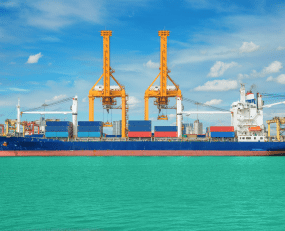
How does the US perceive free trade with its global partners? For many years, as various US administrations forged deals with markets and trading blocs around the world, this question barely seemed worth asking. Of course there were trade disputes, but these were usually short lived and resolved effectively through the World Trade Organization. On the whole, it seemed that the world, led by the US, was moving inexorably towards a regime of free and open trade, a situation which seemed to benefit not least its giant manufacturers.
This is no longer the case and not just because of the new Trump administration. Although it is true that one of Trump’s first acts was to withdraw from the Trans Pacific Partnership as well as undertake an existential review of NAFTA, recent events reveal more deep-rooted tensions. For example, the Commerce Department has threatened to levy countervailing duties of 200% on Canadian aerospace manufacturer, Bombardier, as a response to alleged government subsidies. In addition the US International Trade Commission (ITC) has passed judgement on a case involving solar panels, saying that cheap imports have harmed domestic manufacturers. A report will now be sent to President Trump which may include recommendations for tariffs.
The ITC is now also being asked to adjudicate on alleged unfair competition in the washing machine sector prompted by a complaint from big US manufacturer Whirlpool Corp involving South Korean rivals Samsung and LG Electronics. This comes at a time when Trump is looking to renegotiate (or even exit) the US-South Korean trade deal, Korus.
Although these three cases (and others such as Canadian lumber) involve trade dispute mechanisms which have been in place for many years, there is a perception worldwide that, backed by a president sceptical of free trade, protectionist powers hold sway in Washington.
Therefore a survey undertaken by US-based freight forwarder BDP International comes at a very apposite time. The survey involved polling a number of US shippers who attended one of BDP’s recent customer days in Houston, Texas.
The first question asked regarded their opinions of current free trade agreements. An overwhelming majority of attendees (83%) believed that the US needed to be aggressive in their approach to new FTAs. This hawkish view was backed up by their opinions of NAFTA. A similarly large majority (90%) believed that the agreement was ‘old’ and in need of updating. Only 6% thought it should be left alone. Respondents were more split over the benefits of Free Trade Agreements. 46% believed that they kept US manufacturing costs down, although over a third thought that this wasn’t the case. Two thirds of those surveyed also thought that the Government should do a better job of enforcement outside of the US.
There is no doubt that attitudes towards free trade in the US are complex. Although many outside of the country blame President Trump for the increased levels of protectionism this is only part of the story. Many of the cases which were referred to above were brought by US companies using an existing trade dispute structure agreed under international law. Indeed it remains to be seen whether or not these cases will result in sanctions. However, if the survey conducted by BDP International holds true across US industry as a whole, there is evidently a wider desire for a more robust position on trade relations. This may well mean that politicians and President Trump himself will feel that there is a strong mandate to conduct uncompromising negotiations on future or existing free trade agreements.
Source: Transport Intelligence, October 12, 2017
Author: John Manners-Bell